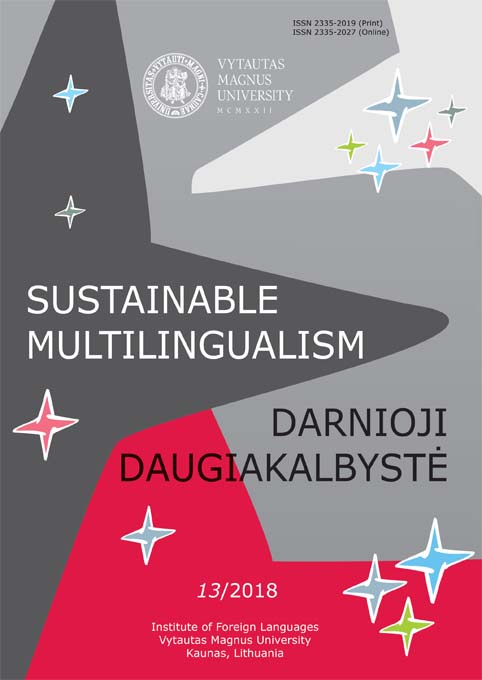Lingvistinė įvairovė, kalbų teisės ir kalbų ekologija
Linguistic diversity, language rights and language ecology
Author(s): Tove Skutnabb-KangasSubject(s): Language studies, Education, Human Rights and Humanitarian Law, Sociolinguistics, Ethnic Minorities Studies
Published by: Vytauto Didžiojo Universitetas
Keywords: ITM children and languages; linguicism; linguistic diversity; language rights; linguistic human rights;
Summary/Abstract: Aiming at the maintenance of biodiversity and healthy ecosystem in the world – vital issues of the 21st century – it is important to preserve linguistic diversity and prevent the increasing language endangerment, thus ensuring the support of linguistic human rights. The author presents a comprehensive explanation of the key terms related to linguistic diversity and language ecology and investigates if educational language rights in international and regional Charters/Conventions support the maintenance of indigenous, tribal and minority languages (the world’s linguistic diversity), thus preventing language endangerment. The answer is that most educational systems in the word today support linguistic genocide in relation to indigenous, tribal and minority children’s language rights, by providing subtractive education as capability deprivation (according to Amartya Sen), which leads to poverty and violation of human rights in general. The author also argues why linguistic diversity and language rights are important for the maintenance of biodiversity and thus a healthy ecosystem.
Journal: Darnioji daugiakalbystė
- Issue Year: 2018
- Issue No: 13
- Page Range: 14-59
- Page Count: 46
- Language: English, Lithuanian

